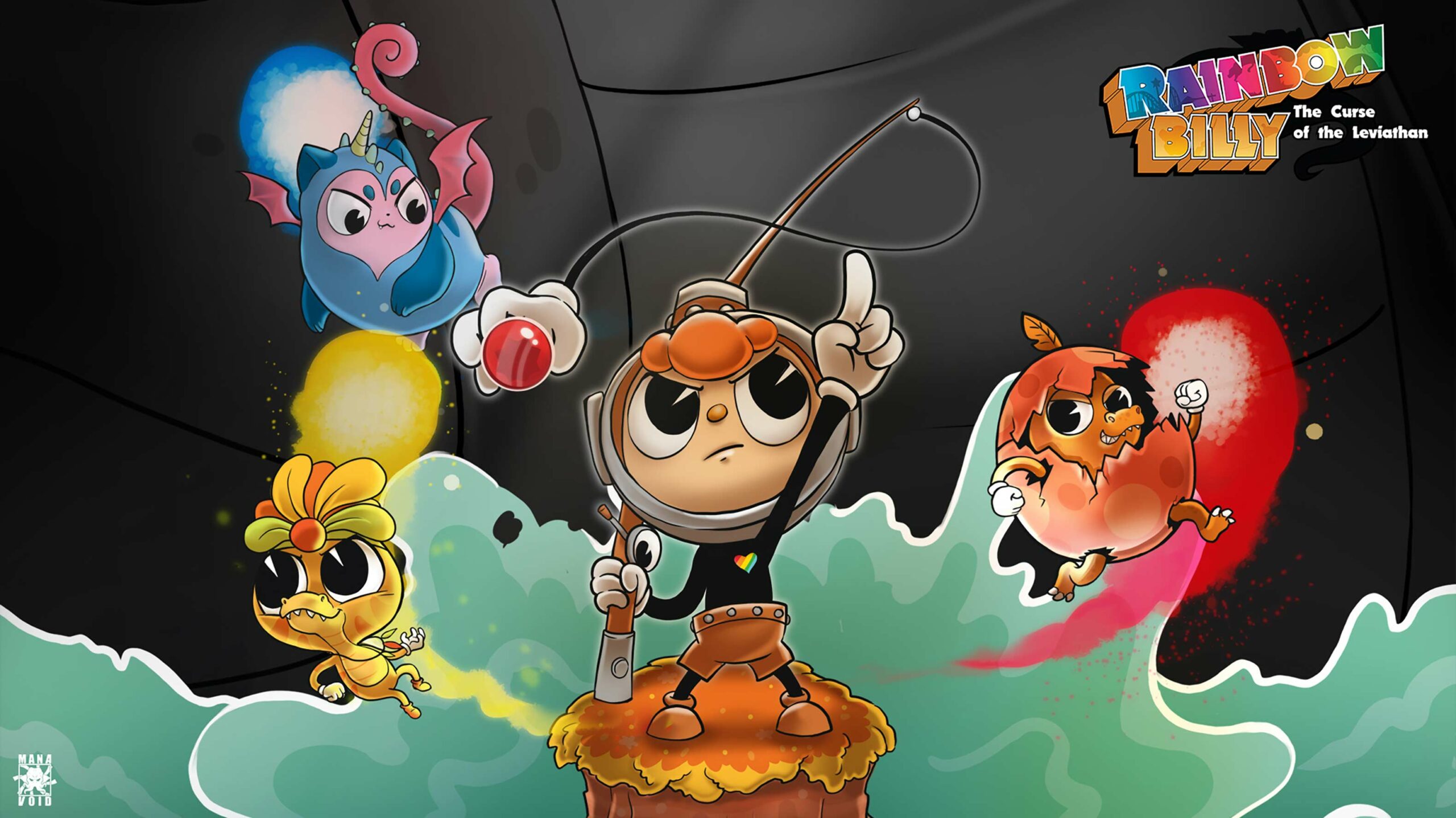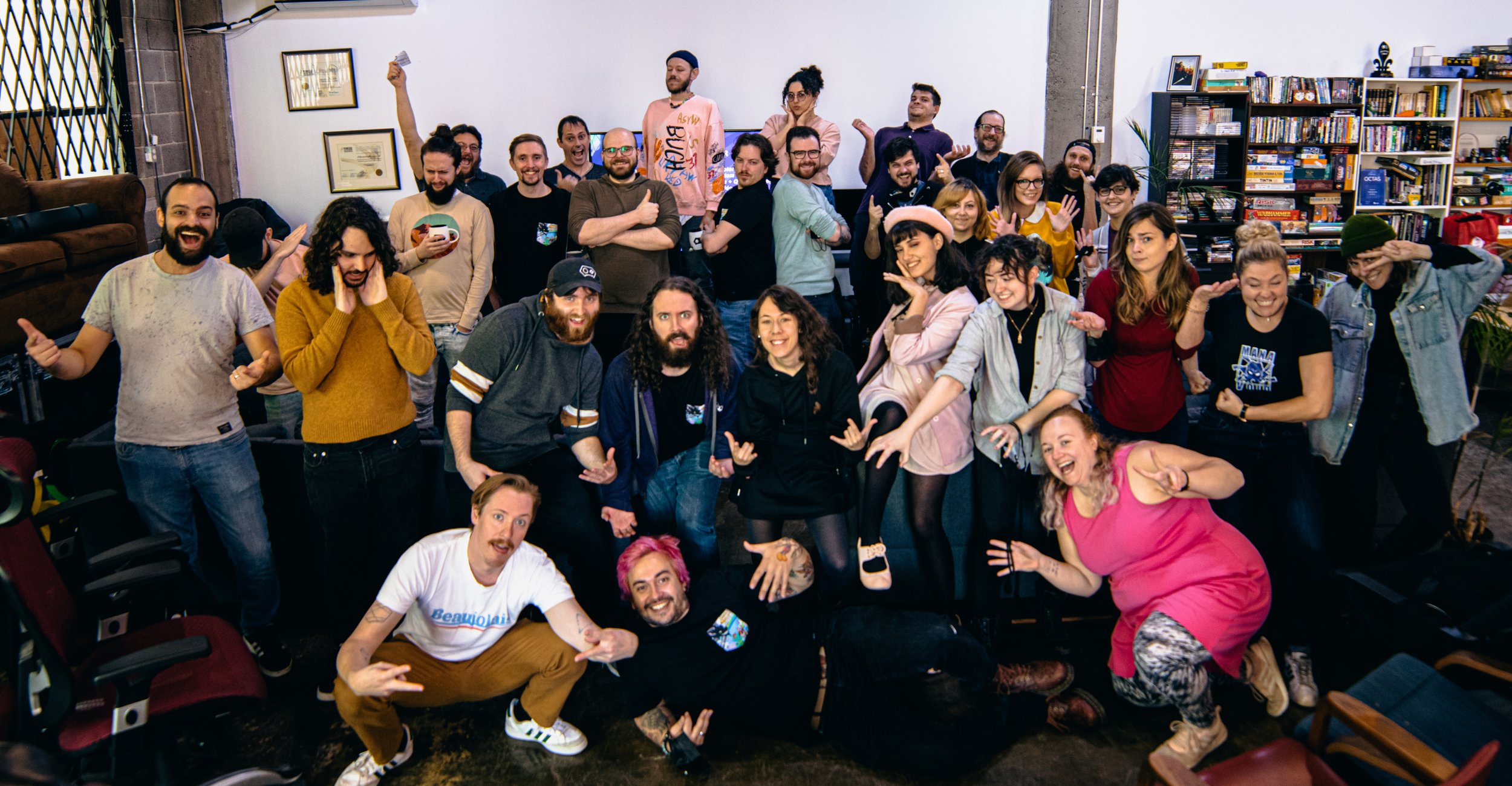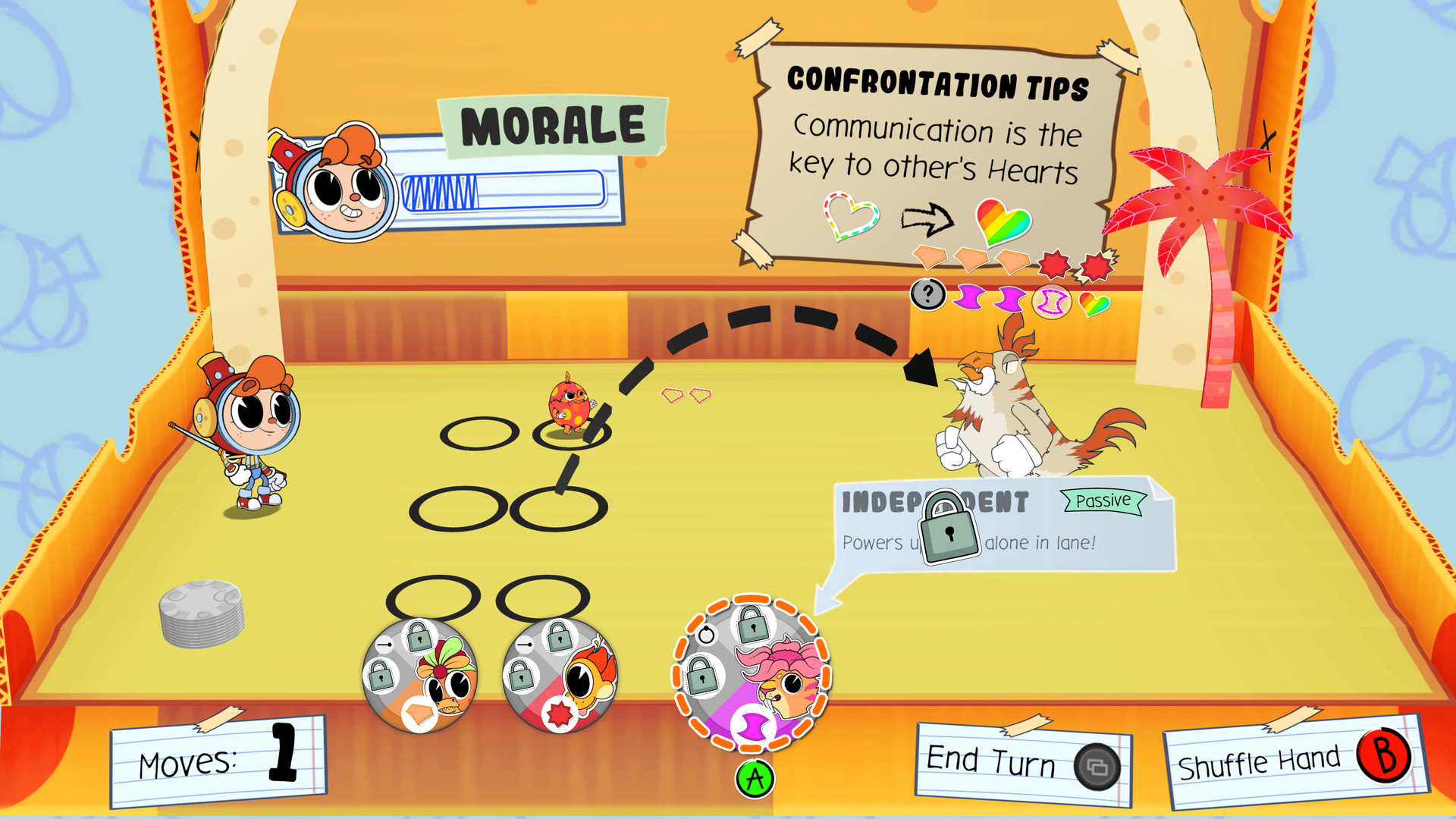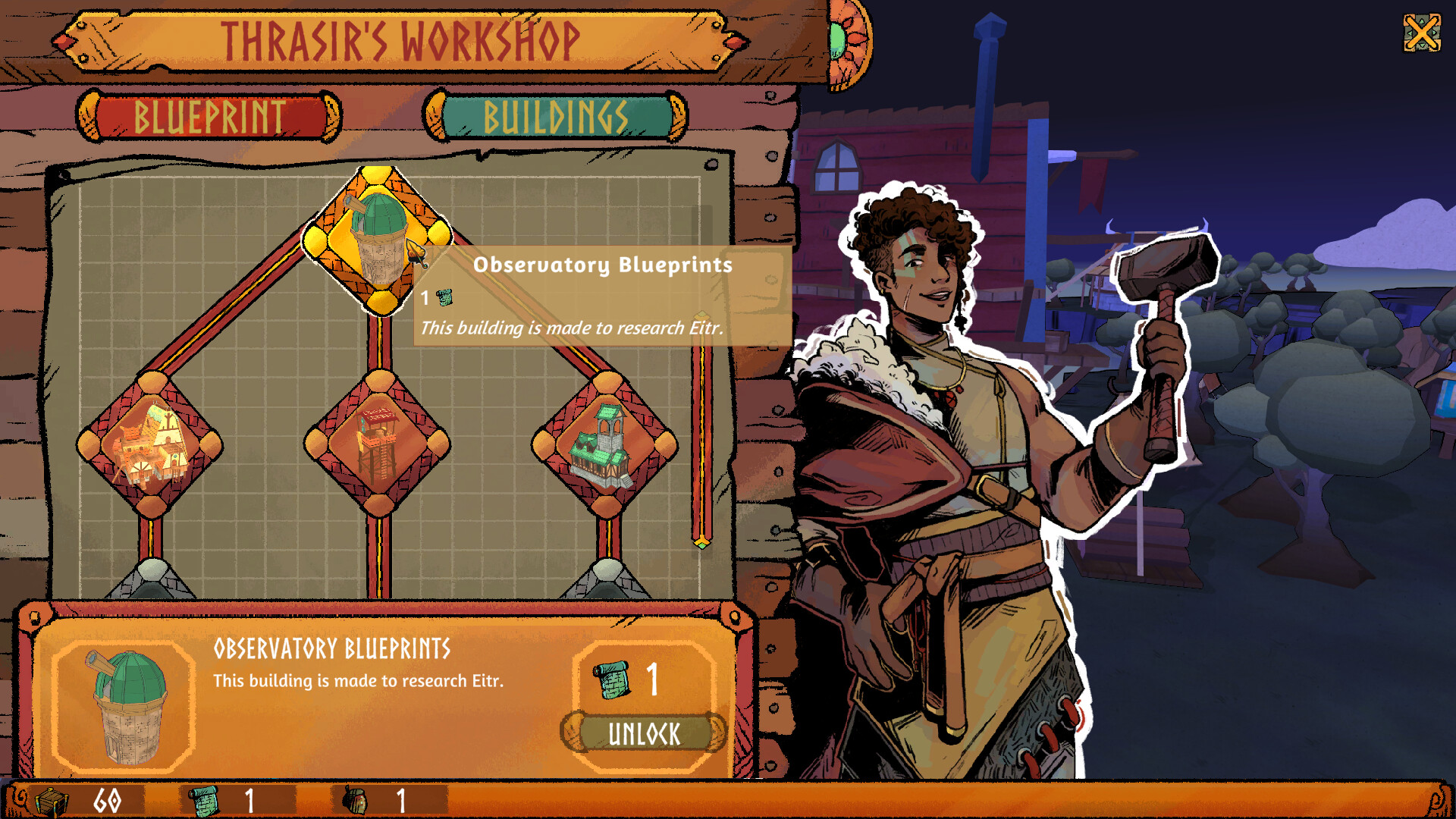
When it comes to the video game space, Chris Chancey has done quite a lot.
After receiving a post-grad degree in game design from the University of Montreal in 2014, he soon founded his own development studio in the city, Manavoid Entertainment. Since then, the developer has released two games: 2016 RPG creator Epic Manager and 2021’s 2.5D adventure-platformer Rainbow Billy: The Curse of the Leviathan. Two more are also on the way: the narrative roguelike city builder Roots of Yggdrasil and strategy fighter Checkmate Showdown.
During that time, he’s handled both hands-on programming work and, more recently, more management-related roles as the studio has grown to around 50 people.
“Entrepreneurship is not for everyone,” he admits. “I think a lot of people come into the industry the wrong way. It’s not like I wanted to start a studio because I wanted to be a businessman; I started the studio because I wanted to make games. So we’re always coming into the industry with an artist’s mindset, and you kind of learn how to become an entrepreneur through the trials and tribulations of creating a company.”
At the same time, he’s taken on a lot of extra work, including teaching at local universities and serving as the co-founder of the Montreal Indie Asylum to help local startups. He says he enjoys getting to see the younger talent grow while also learning more about what that generation enjoys playing. “Students are giving me as much as I’m giving them because it keeps me fresher in the industry.”
Shifting to four-day work weeks
If that all weren’t enough, Chancey’s also managed to help spearhead a nascent trend in the gaming industry: four-day work weeks. In 2019, he was reading a study in Scandinavian countries that had been testing reduced work weeks.
“The premise was the average human has about four and a half hours of focused work in a day. So you know, we all have these eight-hour days, and throughout the day, you’re gonna go on Facebook, or you’re gonna chat with a colleague or have your mind doing other things,” he says. “And what those studies suggested was that four and a half hours becomes five and a half hours to six hours of focused work when it’s on a four-day workweek because you don’t have all of the stress of everything you need to do at home — that extra day allows you more time to relax. And when you arrive at work, you’re just in a better state to be able to do the focused work.”
That inspired him to try something similar with Manavoid. Of course, he notes that it took a few months to fine-tune the process and get fully settled into that workflow.
“The biggest challenges initially were optimizing time. When you’re in a creative industry, you’ll have a lot of meetings where everyone just wants to shoot ideas, and everyone wants to join every meeting, and everyone wants to participate in a lot of different things, especially with indies. And so, if you really want those focused hours of work to be efficient, you need to suddenly be a lot more efficient in which meetings are being made and who should be there and why.”
He says people are also given flexibility with regard to when they want to take the fifth day of the work week off. To help that go smoothly, Manavoid holds 15-minute scrums at the start of the day so people can help one another catch up on what everyone’s working on.

Manavoid team.
Overall, Chancey says it’s clear how well the team has responded to it. The studio was even named one of Canada’s Best Places to Work in 2022 by GamesIndustry.biz. “There’s a whole mental health aspect of it, too, which is everyone is just more relaxed, happier, and able to kind of diffuse all of their stress over those three days weekends instead of doing it over the two days.”
So far, only a few other studios are doing the four-day work weeks, most of which are in Canada, including Vancouver’s Blackbird Interactive (Minecraft Legends), Eidos Montreal (Marvel’s Guardians of the Galaxy) and Montreal’s KitFox (Boyfriend Dungeon).
“I know a lot of other studios are looking at it – I think everyone’s intrigued by it. There’s a lot of successful examples now,” says Chancey. Admittedly, he thinks some studios might have more difficulty adjusting to it than others, such as those who “service work” for constantly live games that could be called on for support at any time. But on the whole, he’s optimistic about the wider adoption of the practice. “People that have paved the way kind of allow other people that have been more conservative initially to kind of actually take a crack at it. So I think you will be seeing more and more studios try it.”
His advice for other studios following suit: leadership organize a trial run to get a feel for it first and then “really commit” to it.
“It certainly has to be part of your core values as a studio, and everyone needs to get behind it to be able to make it work. I can’t send emails on a Friday and expect to be answered by someone that’s supposed to be off that day. So if I’m doing that, I’m not doing a good job as a manager to implement this organizational change. So there needs to be just a lot of emphasis put on it, a lot of communication, on why you’re doing it and set expectations initially.”
Gameplay can be more than just combat

Rainbow Billy.
Another area in where Manavoid has been doing something fairly novel is in its approach to violence in games. That is to say, it’s making a conscious effort not to have it be a part of every title it makes. After seeing a report that found that 83 percent of games shown at E3 2019 included violence, Manavoid was inspired to avoid following suit with its next game, Rainbow Billy.
“When we saw that stat, we were kind of disappointed that the industry wasn’t evolving or innovating as much as it should. And so, we wanted to tell the story in a different way, with different types of characters,” he said. “There’s enough gun violence in the U.S., there’s enough violence on TV, there’s enough violence in movies. If you’re going into video games, sometimes you’re just looking for something different, something fresh, and we want to be that option. So that’s also why we’re really leaning into those things.”
This, coupled with a desire to make a game that was inclusive for all players, led to Rainbow Billy being an entirely combat-free, family-friendly experience. Instead, players engage in platforming, puzzles, creature capturing and more. The studio was particularly praised for making the main character non-binary. “Rainbow Billy was pretty much as wholesome as it gets in terms of messaging and trying to like, celebrate the uniqueness of everyone and everyone’s true colours,” he says.
And while one of its next projects is a fighting game, Checkmate Showdown (co-developed by BadRez Games), its other title, Roots of Yggdrasil is a roguelike city builder centred around Norse mythology — the apocalyptic Ragnarök, no less. Indeed, Chancey acknowledges that this world is “traditionally extremely violent,” which makes it all the more noteworthy that the team has gone a different route.
“I think Marvel Cinematic Universe has proven that you can take that mythology and create something around it that shows more diversity and leans more into the magic of it all and the sheer scale of it all and the stakes without necessarily going down the heavily violent route.”
And even with Checkmate Showdown, he says they’ve taken a much more cartoonish, almost Fortnite-style approach to the anthropomorphic chess piece brawling that makes it a bit more approachable. “We’re just piggybacking on one of the most popular genres in the world, which are fighting games, but just doing it in a way that everyone can pick up a controller and play. And parents can look at it and be like, ‘Great, on top of that, they’re learning chess, amazing!” he says with a laugh.
He also has a more practical viewpoint on it all, noting how different genres and subject matter can bring in more players, like the tile-matcher Candy Crush winning over his mother or the narrative-focused exploration game What Remains of Edith Finch appealing to his wife.
“There is saturation, I think, in the market for these types of things. You’re seeing a lot of games that would have usually made tons of money now be very hit-and-miss. You’re competing today, not just in between other game projects coming out, you’re competing for people’s attention,” he said. “They have Netflix, they have Disney+, Amazon Prime – they have a limited amount of time in their day, so where they’re going to be spending playing video games, and what they’re going to be choosing is going to be close to their values and what they want to see […] So I’m thinking, the diversity in audience, diversity of stories we’re telling — the more success cases you see of games doing it different, it’s going to start slowly changing the mindset.”
This interview has been updated for language and clarity.
Roots of Yggdrasil and Checkmate Showdown don’t yet have release dates, but both can be wishlisted on Steam.
Image credit: Manavoid Entertainment




